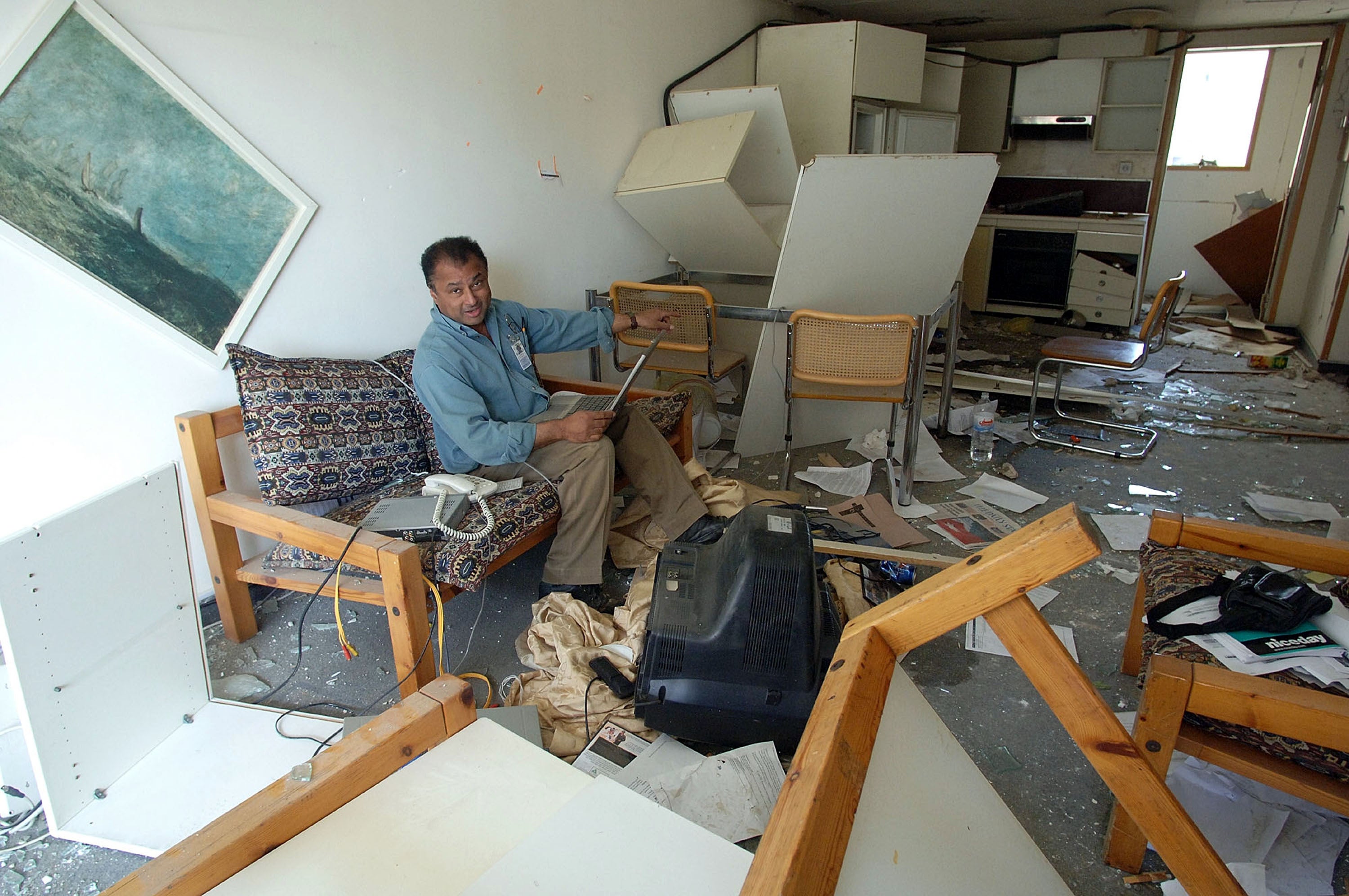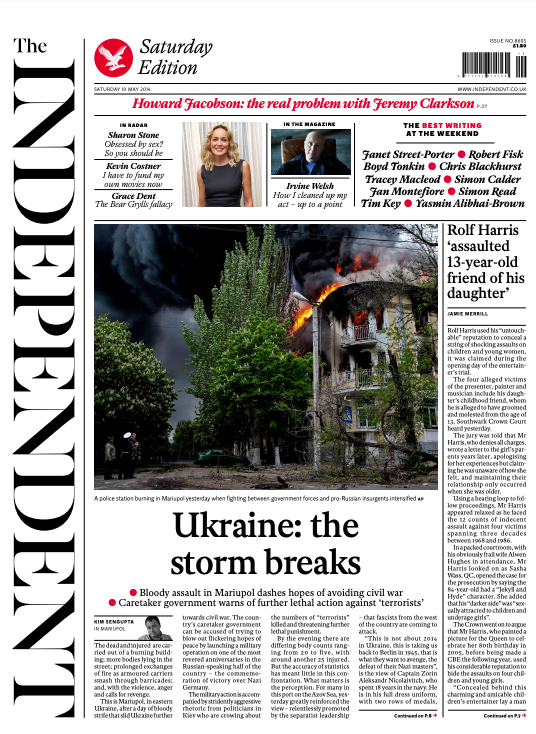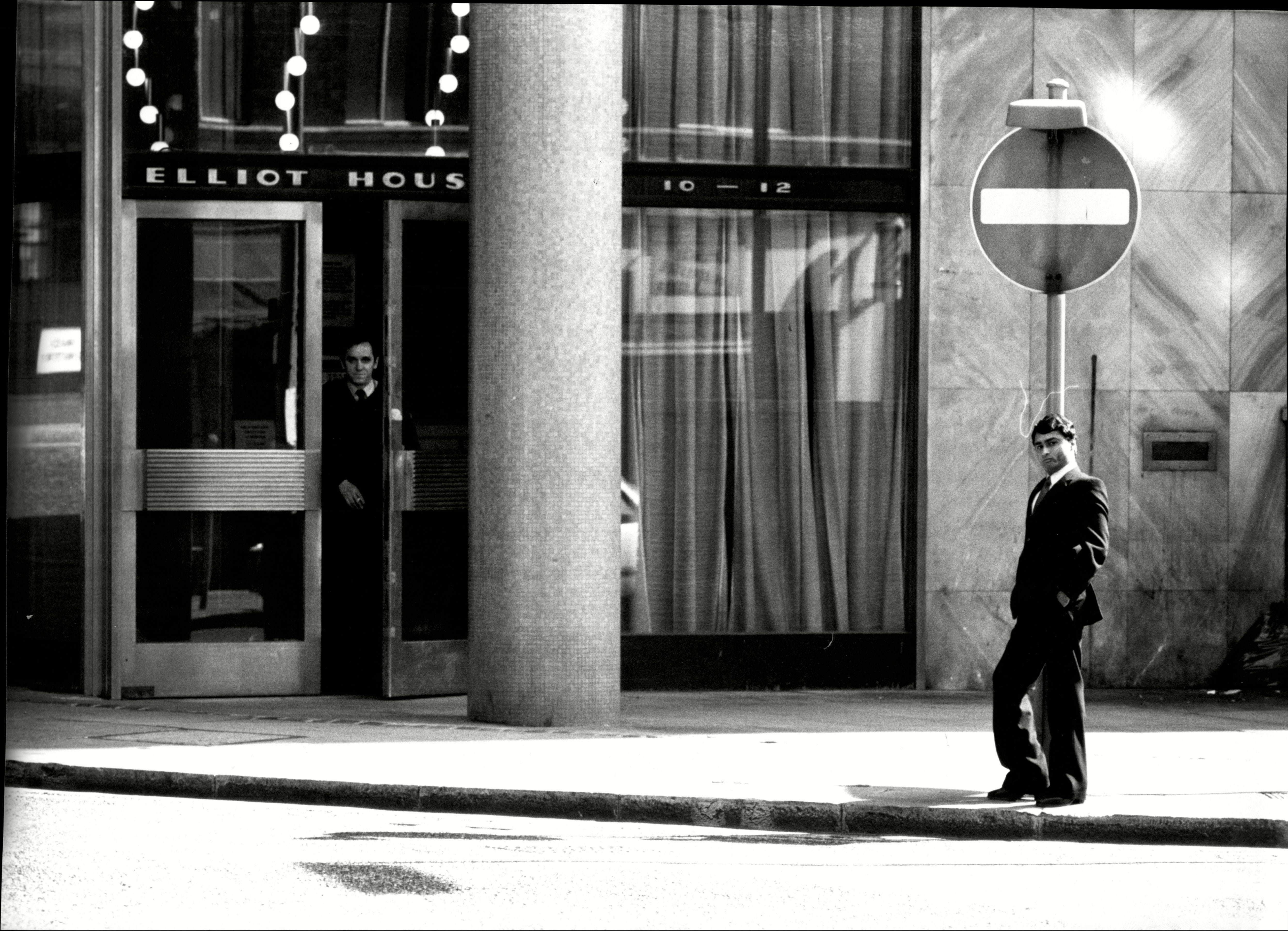The Independent’s award-winning war correspondent Kim Sengupta dies
In a career spanning more than four decades, it was at The Independent that Kim would define his legacy as one of Britain’s best on-the-ground correspondents, writes international editor Chris Stevenson
Your support helps us to tell the story
From reproductive rights to climate change to Big Tech, The Independent is on the ground when the story is developing. Whether it's investigating the financials of Elon Musk's pro-Trump PAC or producing our latest documentary, 'The A Word', which shines a light on the American women fighting for reproductive rights, we know how important it is to parse out the facts from the messaging.
At such a critical moment in US history, we need reporters on the ground. Your donation allows us to keep sending journalists to speak to both sides of the story.
The Independent is trusted by Americans across the entire political spectrum. And unlike many other quality news outlets, we choose not to lock Americans out of our reporting and analysis with paywalls. We believe quality journalism should be available to everyone, paid for by those who can afford it.
Your support makes all the difference.Kim Sengupta, the award-winning war correspondent who covered every major conflict of the last 30 years, has died at the age of 68.
In a career spanning more than four decades – including spells as a reporter at the Daily Mail and Today – it was at The Independent that he would define his legacy as one of Britain’s best on-the-ground correspondents. The list of countries and conflicts he would file from included Afghanistan, Iraq, Syria, Libya, the Balkans, Ukraine, Georgia, Kosovo, Mali, Sudan, Somalia, Kashmir, Israel, Gaza and Northern Ireland.
Kim’s ability to get those he came into contact with to open up ensured he had a contact book that was the envy of man. It also allowed him to work his way into places others could not reach, or out of any difficult situation he found himself in.
An example was in the Syrian civil war in 2012, when Kim was the only international reporter in the city of Aleppo when Bashar al-Assad’s forces began an offensive to clear the main opposition stronghold. His work from Syria would make him a finalist for the Orwell Prize for journalism the next year.
Syria was one of the countries that Kim would return to multiple times; others would be Iraq, Afghanistan, Ukraine, and Israel and the occupied Palestinian territories. Afghanistan, Ukraine and Gaza would occupy much of the last few years of his reporting, drawing on the experience he gathered over many years.
He was in eastern Ukraine watching as Russian special forces aided Moscow-backed separatists to seize territory, with Vladimir Putin eventually annexing Crimea. After years of low-level conflict, Putin would eventually invade Ukraine in February 2022, with Kim again there to report on the human suffering as Kyiv’s forces pushed back the Russian assault. Across the last two years, Kim crisscrossed the country reporting on families and lives ripped apart by the invasion, travelling battle-scarred roads pock-marked by artillery, drone and missile strikes to give a voice to those Ukrainians fighting against Putin’s war.

Kim witnessed the rebirth of Afghanistan in 2001 as the Taliban was toppled and a people came out of its shadow. Twenty years later, he was there to document the violent chaos of the fall of Kabul as the Taliban returned, with people being crushed to death in the rush to get aboard planes leaving the country, or falling from the wheels as the transports took off.
Kim also reported from Israel and the occupied West Bank during Israel’s war inside Gaza that was triggered by the act of terror by Hamas on 7 October last year. Having covered every Israel-Gaza conflict of the 21st century – from inside Gaza the vast majority of the time – Kim reflected the anger and anguish of both Israelis and Palestinians as the death toll climbed to unprecedented levels.
It didn’t matter where in the world the story was, Kim would follow it. From the war in Iraq, through the Arab spring, the fall of Gaddafi in Libya, Islamist insurgency in Mali and the rise and fall of Isis in Iraq and Syria. The death of Nelson Mandela, the fall of Robert Mugabe in Zimbabwe, elections in Iran and the threat of China invading Taiwan.

His work brought multiple nominations for foreign correspondent of the year and journalist of the year at the British Journalism Awards and the Press Awards and three nominations for the Orwell Prize for journalism. Other accolades include being named journalist of the year at the Asian Media Awards.
It was not just the front line where Kim excelled; his contacts in the military and security world were second to none, having served as defence correspondent and then defence and diplomatic editor for many years. This informed his reporting across the board and led to stories such as exclusive revelations about the dossier compiled by former MI6 agent Christopher Steele about Donald Trump.
Admiral Lord West of Spithead, former first sea lord, paid tribute to Kim: “I first met Kim about the time of 9/11 and he often would ask me about Afghanistan as the operation moved forward.
“He was a most impressive reporter who took risks to ensure he got the stories he felt important. He had an enquiring mind and was quick to reach the heart of the matter. Very personable, he was totally reliable when I spoke to him off the record and never let me down, even though sometimes he was privy to some amazing things.

“He was amusing and delightful company and we sometimes bumped into each other at his local, The Feathers in Highgate. A pint with him was always enjoyable and he will be sorely missed.”
General Sir Richard Barrons, former head of Joint Forces Command and deputy chief of defence staff, said: “Kim and I spoke often about the defence issues of the day. He was deeply interested in the whole subject, especially and I felt personally in the lot of those who serve in harm’s way for their country. He had a razor-sharp sense for a scoop and never shied away from painful truths, but also took immense care to make sure he had the context right and the ‘what next’ was clear.”
Joining The Independent in 1996, wherever Kim found himself, he carried out his work with good humour. An example was a 2005 picture from his hotel in Baghdad, which had been hit by the blast wave of a suicide bomb. In Kim’s own words: “I was lying in bed, reading, and a horizontal shower of jagged glass flew over me across the room.

“My lethargy had saved me: I would have been seriously injured or worse if up and about. Instead, I got only cuts and bruises. A colleague, Catherine Philp from The Times, later found a ten-inch shard of glass sticking out of the mattress next to my pillow which I had not noticed.”
The picture, taken by a Getty photographer, shows Kim – sat on a sofa with laptop in hand – almost nonchalantly pointing to some of the damage in the devastated room.
Paying tribute to Kim, The Independent’s editor-in-chief, Geordie Greig, said: “The sudden death of Kim Sengupta is a devastating loss for The Independent as well as for the wider world of journalism. Kim was a reporter’s reporter. He lived for the story and courageously covered countless conflicts from Iraq to Ukraine.

“I first knew him more 40 years ago when he was a general reporter in Fleet Street and from those early days hugely admired his tenacious and tireless ambition to quest and pursue. He lived and worked ferociously hard, more often than not on the front line, with a Hemingway swagger as he travelled the globe for The Independent.
“Modestly, he downplayed the dangers of war even as he told of the trials and tribulations of reporting with zest, humour and humanity.”
Chris Blackhurst, former editor at The Independent, said: “In many years of working with Kim Sengupta I never came across anyone so fearless.
“As editor, you get to appreciate which journalists are ‘high maintenance’, constantly and painfully seeking approval and reassurance. Kim, despite the places he went, was most definitely not one of those. If he said he was going somewhere, he went there.
“He had an extraordinary knack for talking to anyone, be they ambassadors or generals or privates or those of an unspecified background – security services most probably – and extracting information from them. Kim really was one of a kind.”






Join our commenting forum
Join thought-provoking conversations, follow other Independent readers and see their replies
Comments